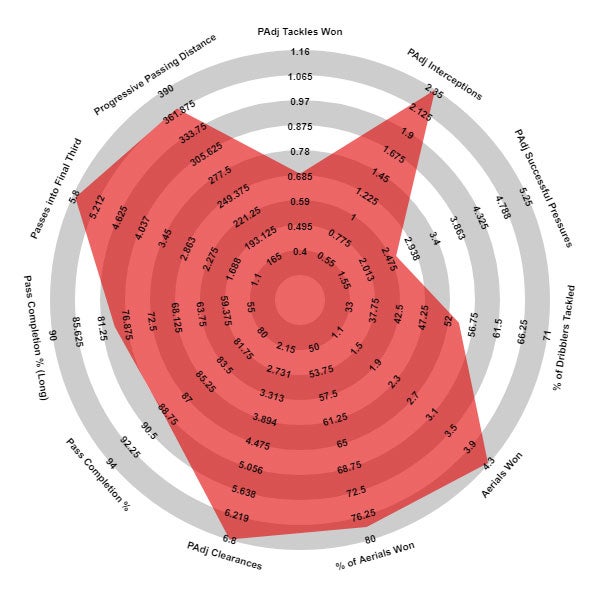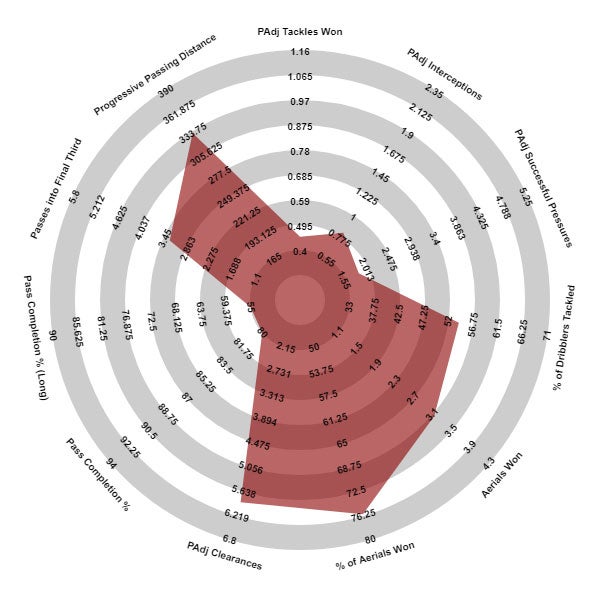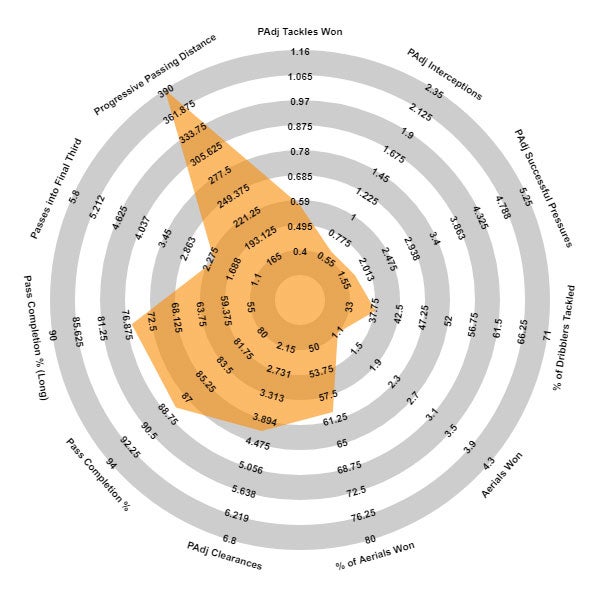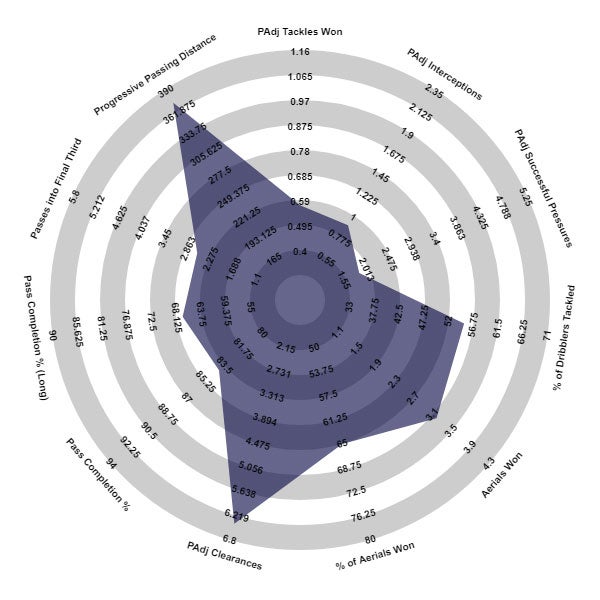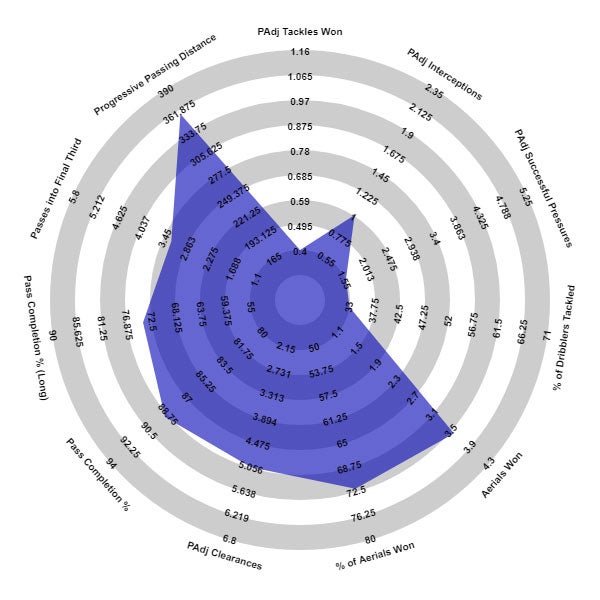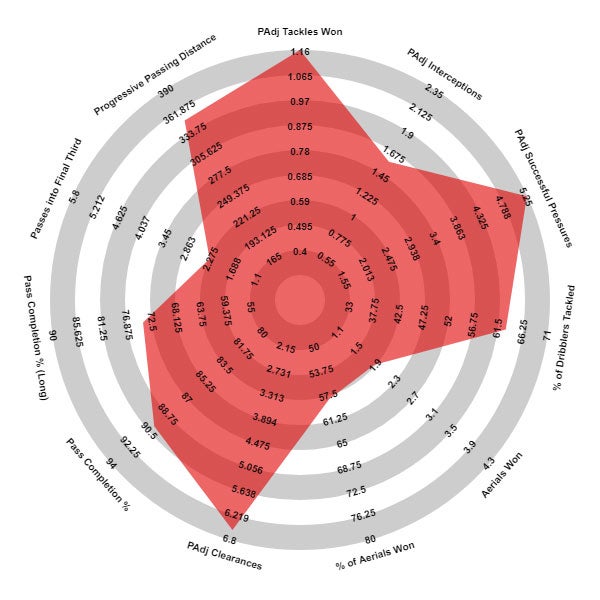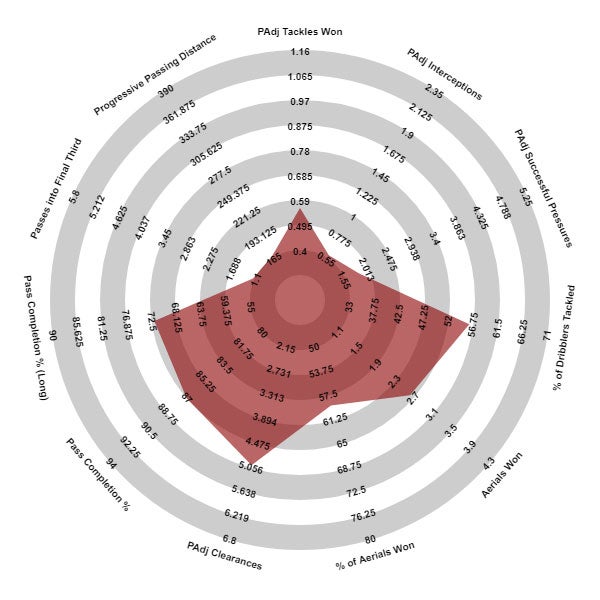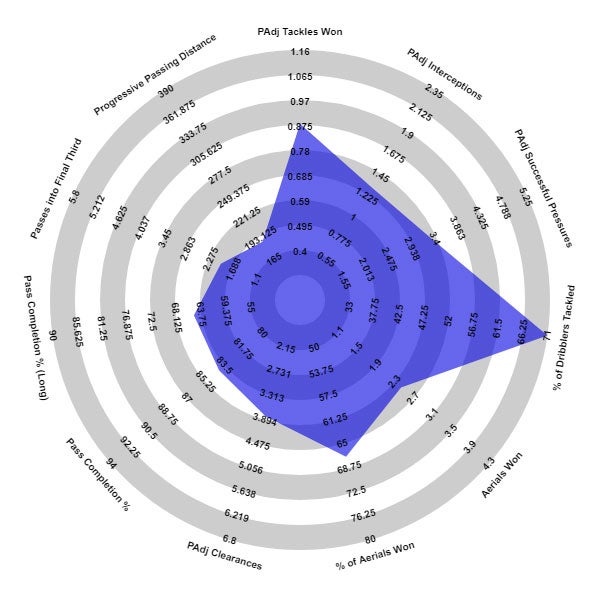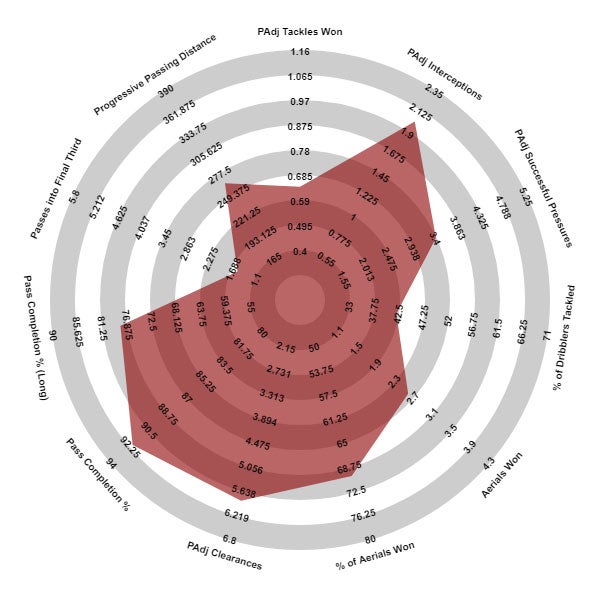England squad Euro 2020: Which centre-backs should Gareth Southgate pick?
England will enter this summer’s delayed Euro 2020 tournament with the best squad depth that they have had in a generation.
Gareth Southgate has a wealth of attacking talent to choose from and more right-backs than anyone knows what to do with. If there is a problem position, though, it is in the centre of defence.
John Stones has reasserted himself as the first choice to play alongside Harry Maguire over the past few months but beyond that partnership, it is not entirely clear who is best-placed to provide cover.
And cover may well be needed, given that Maguire is in a race against time to come back from a knee ligament injury.
Tyrone Mings, Conor Coady and Eric Dier were all part of the squad for the March internationals and appear to be in contention for a spot in the expanded 26-man selection, which will be announced next Tuesday.
After looking at how each of those candidates and a few outside bets have performed in their domestic leagues over the past season, The Independent has crunched the numbers in an attempt to see who Southgate should pick.
On the bus
Harry Maguire
Harry Maguire – Manchester United, 2020-21 Premier League
First, it’s worth looking at what England could be missing if Maguire does not recover from his ankle injury quickly. The Manchester United captain is Southgate’s best centre-back by a distance, capable of dominating in the air, carrying the ball up the pitch and taking part in build-up play.
Maguire is not the most active when it comes to winning tackles or successfully closing opponents down but then he is not really trying to do any of that either, preferring to stand off, hold shape and read what happens in front of him. He is particularly good at intercepting the ball, cutting out nearly two-and-a-half attacks every game.
Maguire’s greatest flaw is a relative lack of pace and mobility, which is why he can be beaten on the dribble, but he has learned to compensate for this. Vital to how United play in and out of possession, he is just as important for his country. None of England’s other centre-halves have this range of abilities. Southgate can only hope he recovers quickly.
John Stones
Despite being dropped by Southgate last season and then being overlooked up until the most recent international break, Stones will go into the tournament as one of England’s two first-choice centre-halves. It is a remarkable turnaround for a player who has been a regular in the Premier League’s meanest defence.
His greatest strength is, of course, his passing. Not only does Stones rarely give the ball away, he also moves possession up the pitch effectively, averaging nearly six passes into the final third every game. When it comes to more traditional centre-back attributes, he wins a good amount of his aerial battles and is not afraid to step up and engage.
If there is a concern, it is that he can be rather easily beaten on the dribble. Then there are the lapses of concentration which have cost him at club and international level in the past. The positives far outweigh the negatives, though, and his return to form at Manchester City is a huge positive for Southgate.
In contention
Tyrone Mings
Mings has been a squad regular since the start of the Euro 2020 qualifying campaign and his left-footedness is highly-valued, particularly when England play with a back three. Aston Villa’s defence started the season well under his leadership too but has declined in the second half of the campaign.
The 28-year-old profiles like your typical, old-fashioned centre-back. Mings wins a good proportion of his aerial duels – rivalling Maguire and Stones – and makes a fair amount of blocks and clearances too, though prefers to sit rather than attempting to press or tackle and hunt down the ball.
Mings’ pass completion rate is the lowest of all Southgate’s centre-back options by quite a distance, but this is at least partly a product of Villa’s direct style of play. He does at least move the ball into the final third every now and then, though not as much as either Maguire or Stones.
Conor Coady
After much clamour for him to be called up among Wolves supporters, Coady won his first cap last September and has since won three more, even captaining England twice. As with Mings, Southgate is said to admire his leadership qualities and influence on others around the squad.
On the pitch, the Wolves captain helps to move the ball forward – some 390 yards every game – but he is rarely the one to play it into the final third. His long passing is accurate, coming off three quarters of the time, and he is not afraid to put his body on the line to block the ball. Other than that though, he is not a particularly active defender.
Coady wins just over one aerial battle on average each game and often comes out second best when being run at. Again, some of the low defensive output is a product of his manager’s deep-set and disciplined system, but whether Coady is suited to a more expansive game with England is an open question.
Eric Dier
Dier was called up in March but played no part in England’s three World Cup qualifiers, raising questions about his finals place. Southgate values his relative wealth of experience, with two tournaments under his belt, but he appeared to be behind Mings and Coady in the pecking order during the last camp.
As a centre-back, Dier is cut from a similar cloth, preferring to be more reactive than proactive, and is something of a mix between the two. He moves the ball further up the pitch and tackles more than Mings, while winning more aerial battles and making more interceptions than Coady.
Despite his greater international experience, Dier does not jump out as the clear third-choice behind Maguire and Stones. There is not much to choose between the Tottenham defender and his two main rivals for a place. If anything, he is a halfway house between the two, which may or may not work in his favour.
Michael Keane
Keane was included in the autumn squads but omitted from the most recent camp, suggesting he has a fight on his hands to win back his place. Everton’s patchy form does nothing to help his cause and nor does the fact that he profiles similarly to the others: as a reactive defender who prefers to hold his position.
The 28-year-old’s biggest strength is in the air, where he wins more aerial battles than Mings. Yet when it comes to winning tackles or closing down, that is not his game. He has won only a third of his battles against opponents who have attempted to dribble past him, the lowest rate of all the contenders.
Keane’s passing has improved over the years and he moves the ball into the final third well but not nearly as much as Maguire or Stones. Like Dier, he does not offer much different to either Mings or Coady and will find it hard to displace them having been overlooked by Southgate in March.
Outside bets
Fikayo Tomori
Tomori is probably the most interesting of all the outside bets. Out of sight and potentially out of mind in Milan, the Chelsea loanee has made such an impression with his aggressive brand of defending at the San Siro that Stefano Pioli hopes to sign him permanently this summer.
You can see that aggression in the data. Tomori hunts the ball down, making more tackles and successful pressures than any of his rivals for Euros place, which marks him out as a different type of centre-back to the ones which Southgate has tended to consider. He is rarely beaten on the dribble, too.
Tomori’s clearest weakness is in the air, where he has won just over half of his headers, at an average of around two a game. Against the right opposition though, and especially in a back three where he has the cover to be aggressive, he could make for an exciting alternative to the rest of England’s options.
Ezri Konsa
Many of the Villa supporters championing Mings’ place in the England set-up have asked why his younger centre-back partner Ezri Konsa has not also been handed an opportunity to impress. Southgate and others within the camp have watched him closely but he is yet to be called up to the senior squad.
Konsa is a more accurate passer than Mings but he does not move the ball forward as much and is weaker in the air too. The 23-year-old wins more tackles but fewer interceptions than his team-mate and, in terms of the raw data, does not offer much more than his rivals for a spot.
His displays in the first half of the season as part of a tightened-up Villa defence marked him out as one for the future, potentially alongside fellow Charlton academy graduate Joe Gomez, but this tournament has probably come too soon.
Ben Godfrey
Arguably Everton’s player of the season, Godfrey was called up to the Under-21s Euros squad for their group stage elimination in March. That was a sign that he is not in Southgate’s plans for now, but his eye-catching first season at Goodison Park should not be dismissed out of hand.
Godfrey shuts rivals down brilliantly, coming out on top against opponents dribbling at him more than two-thirds of the time. Though not as aggressive as Tomori, he is proactive in his defending, making more tackles than Maguire and Stones on average, even when Everton’s lower share of possession is taken into account.
The 23-year-old’s distribution could be improved, and struggles to match up to team-mate Keane, but he is stronger in the air than Tomori and a lot of the fundamentals are there if Southgate is tempted to go for a young centre-back who defends on the front foot to provide useful cover.
Chris Smalling
A true wildcard choice, Smalling has not been named as part of a squad since October 2017. Southgate suggested that the ex-United defender was not well suited to playing the ball out from the back at the time. The England manager has since described those comments as “unfair” and admitted he regrets making them.
This season at Roma, Smalling has one of the better pass completion rates among centre-backs in Serie A but does not move the ball forward in the manner of Maguire, Stones or Coady. His number of interceptions is impressive and indicates he prefers to anticipate and read opposition attacks, though he will step up and press occasionally.
At 31-years-old, as a veteran of Euro 2016 and the debacle against Iceland, and without a cap in nearly four years, Smalling’s time as an England player has probably been and gone but he is performing at a similar level to the other contenders for a spot in the squad and could do a job if required.
Who should Southgate pick?
As you can see from the profiles, centre-backs broadly split into two categories: proactive and reactive.
Southgate has a clear preference for the latter if his squads over the past few years are anything to go by. Even Maguire – the most well-rounded of all England’s options – is not particularly interested in defending aggressively and prefers to intercept the ball rather than engage to win it back.
If that is the way England want to play, the likes of Mings, Coady and Dier make sense as cover for Maguire and Stones.
But if Southgate decides he wants the option of playing a more proactive defender – perhaps as part of a back three – then either Tomori or Godfrey could be worth taking as one of his extra three players.
Data from StatsBomb via FBRef.Radar tool designed by Charles Boutaud.
Source: Read Full Article

